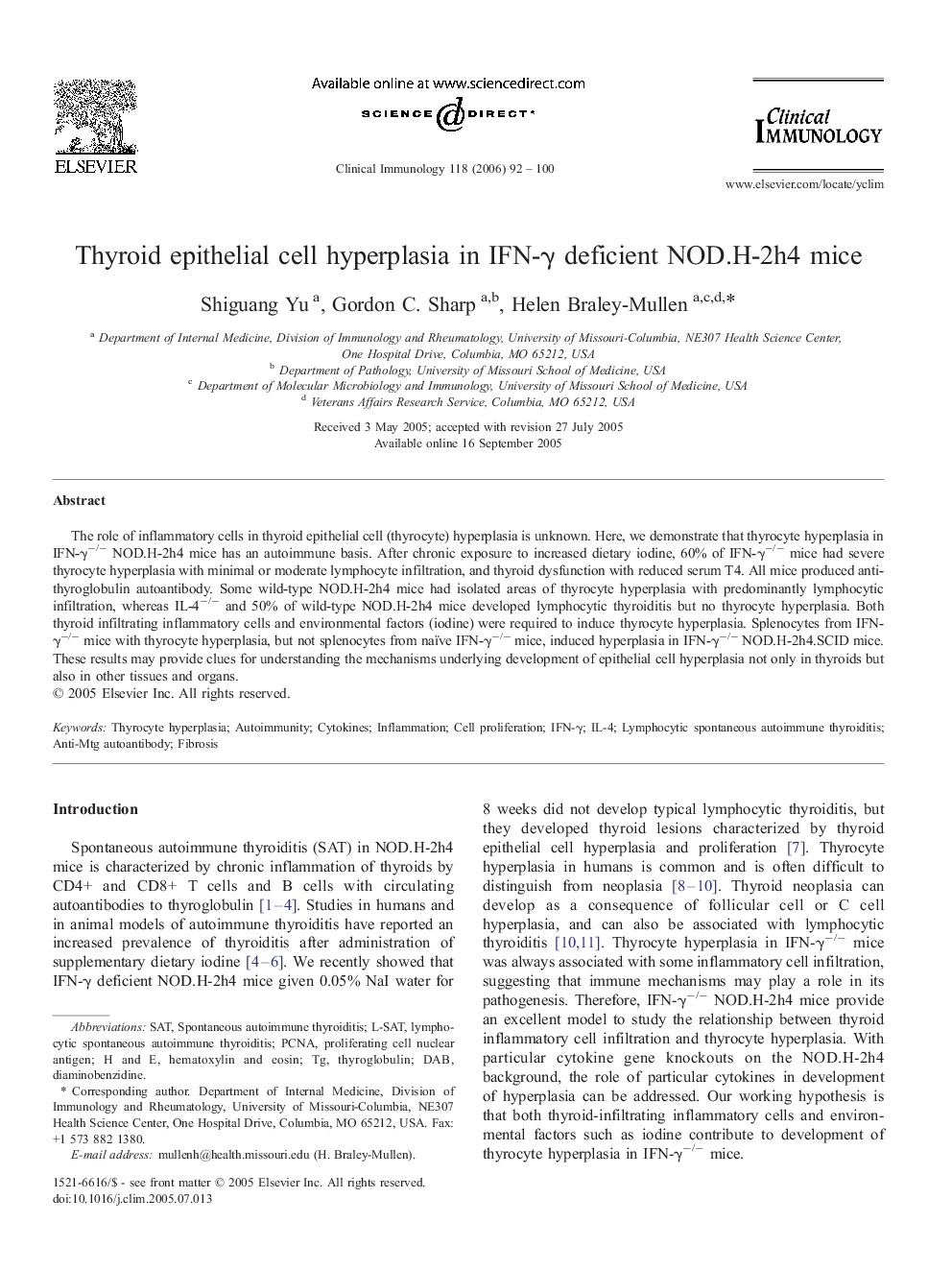| Article ID | Journal | Published Year | Pages | File Type |
|---|---|---|---|---|
| 3258946 | Clinical Immunology | 2006 | 9 Pages |
The role of inflammatory cells in thyroid epithelial cell (thyrocyte) hyperplasia is unknown. Here, we demonstrate that thyrocyte hyperplasia in IFN-γ−/− NOD.H-2h4 mice has an autoimmune basis. After chronic exposure to increased dietary iodine, 60% of IFN-γ−/− mice had severe thyrocyte hyperplasia with minimal or moderate lymphocyte infiltration, and thyroid dysfunction with reduced serum T4. All mice produced anti-thyroglobulin autoantibody. Some wild-type NOD.H-2h4 mice had isolated areas of thyrocyte hyperplasia with predominantly lymphocytic infiltration, whereas IL-4−/− and 50% of wild-type NOD.H-2h4 mice developed lymphocytic thyroiditis but no thyrocyte hyperplasia. Both thyroid infiltrating inflammatory cells and environmental factors (iodine) were required to induce thyrocyte hyperplasia. Splenocytes from IFN-γ−/− mice with thyrocyte hyperplasia, but not splenocytes from naïve IFN-γ−/− mice, induced hyperplasia in IFN-γ−/− NOD.H-2h4.SCID mice. These results may provide clues for understanding the mechanisms underlying development of epithelial cell hyperplasia not only in thyroids but also in other tissues and organs.
